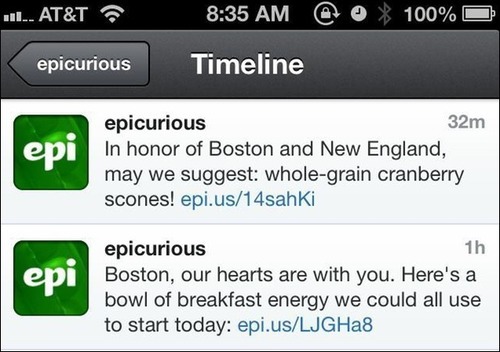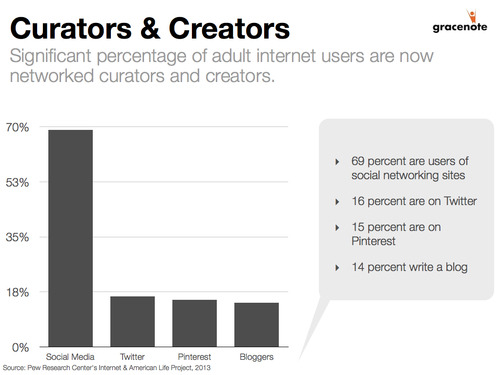The Emergence of Networked Curators and Creators and What It Means for Marketing
The press has long been called the “forth estate,” a reference to the medieval estates of the realm (the clergy, the nobility and the commoners). Today, we see the emergence of a “fifth estate” of Internet users who are new curators and creators of content.
At the Mid-Altantic Marketing Summit in Washington, DC last week, Lee Rainie, Director of the Pew Research Center’s Internet and American Life Project, gave a fascinating keynote presentation on this topic. Prior to joining Pew, Lee spent his career in traditional news media and was Managing Editor of U.S. News & World Report.
Lee began his presentation by discussing the interplay between the traditional news media and social networking participants during the Boston marathon bombing. For example, news of the bombing was first reported on Twitter one minute after the explosion. The Red Cross and others quickly launched “I’m Fine” and “People Finder” sites. A spreadsheet that listed free places to stay for those impacted was created and made available online. Individuals crowdsourced the investigation by examining photos and videos and sharing comments and findings via social media. And, there were a few marketing disasters.
Epicurious sparked outrage on Twitter by posting several tweets promoting recipes after the disaster.

And, several companies were scolded for not turing off their automated social media feeds in the aftermath of the bombing. For example, one person tweeted:
All you #SocialMedia “gurus” out there: turn off your scheduled tweets during a crisis. Your clients/co’s look like jerks.
This rising new media ecosystem, what Lee called the “fifth estate,” applies to marketing in several ways. The Fifth Estate is:
- Real-time/ just-in-time
- Pervasively generated and consumed
- Continuously edited
- Personal
- Linked
- Participatory/ social
- Timeless and searchable
- Multi-platformed
The number of people who are participating in the “fifth estate” is also growing. Pew Research indicates that heavy social media users are likely to be happier, more connected and more civic minded. Social media users represent a highly engaged segment of the population.

All of this means that, for marketers, we need to be aware of the massive volume, variety and velocity of information and the proliferation of new pathways to connect with people. We must also be aware of social norms, good manners, and common sense when interacting via social media. And, finally, we must keep in mind that the timeless and searchable nature of social media content can make understanding context difficult after the fact. For example, many of the tweets during the conference (#MAMSummit) may be difficult to understand for those who did not attend or happen to view them after the fact.
The Fifth Estate is changing the nature of human communication and interaction in unprecedented ways. It creates both challenge and opportunity for marketing organizations. How will you and your organization respond?



